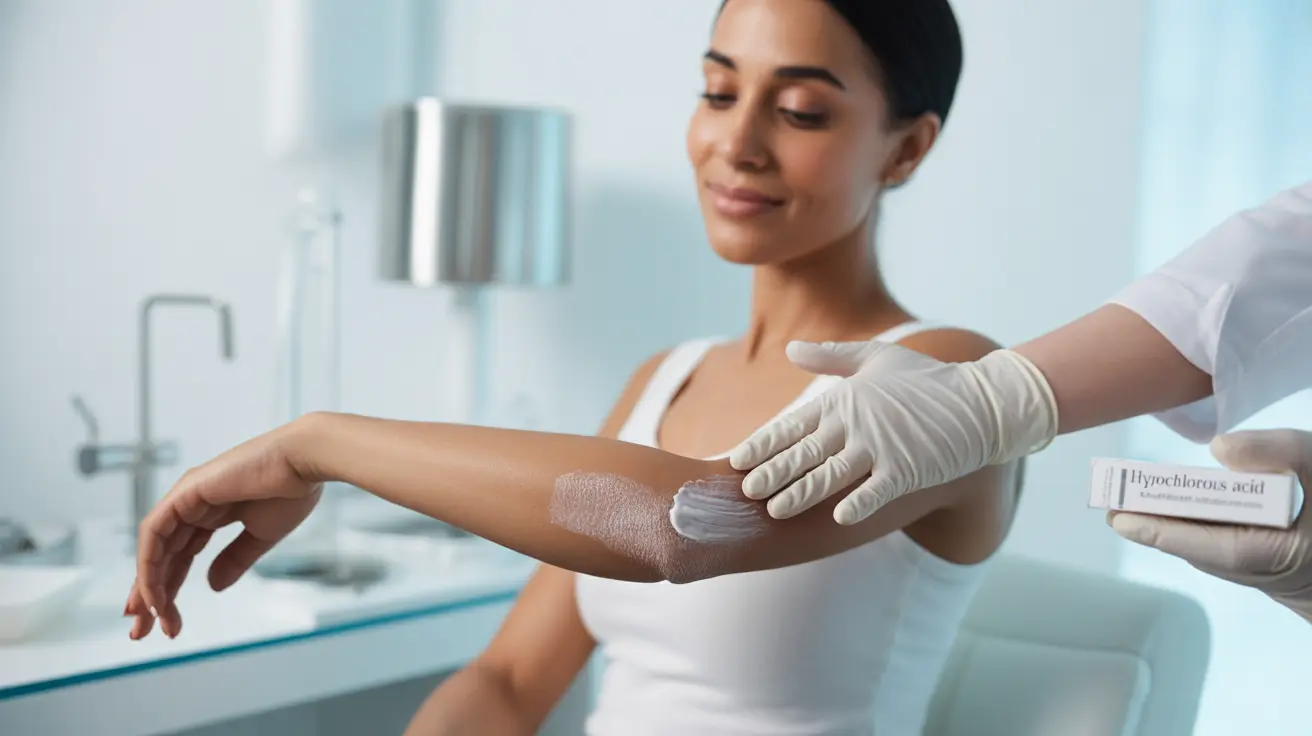For individuals living with psoriasis, finding effective treatments that don't cause additional irritation can be challenging. Hypochlorous acid (HOCl) has emerged as a promising option for managing psoriasis symptoms, thanks to its natural antimicrobial and anti-inflammatory properties. This compound, which is similar to what our immune cells produce naturally, may offer relief while being gentle enough for sensitive skin.
Understanding how hypochlorous acid works and its potential benefits for psoriasis management can help you make informed decisions about incorporating it into your skincare routine. Let's explore the science behind this treatment option and what current research reveals about its effectiveness.
Understanding Hypochlorous Acid and Its Properties
Hypochlorous acid is a naturally occurring compound that the human body produces as part of its immune response. When applied topically, it demonstrates several beneficial properties that may help manage psoriasis symptoms:
- Antimicrobial activity
- Anti-inflammatory effects
- Wound healing support
- Skin barrier protection
- pH balance maintenance
How Hypochlorous Acid Works for Psoriasis
When applied to psoriatic skin, hypochlorous acid works through multiple mechanisms to help manage symptoms and promote healing:
Inflammation Control
The compound helps reduce inflammation by modulating the immune response in affected skin areas. This can lead to decreased redness, scaling, and irritation commonly associated with psoriasis flares.
Antimicrobial Protection
Hypochlorous acid creates a protective barrier against harmful bacteria that could potentially worsen psoriasis symptoms or lead to secondary infections in compromised skin areas.
Skin Barrier Support
The gentle nature of hypochlorous acid helps maintain the skin's natural barrier function while providing therapeutic benefits, making it particularly suitable for sensitive, psoriatic skin.
Benefits of Using Hypochlorous Acid for Psoriasis
Several advantages make hypochlorous acid an attractive option for psoriasis management:
- Non-irritating and gentle on sensitive skin
- Compatible with other psoriasis treatments
- No known serious side effects
- Easy to incorporate into existing skincare routines
- Helps prevent secondary infections
Safe Application and Usage Guidelines
While hypochlorous acid is generally considered safe, following proper application guidelines ensures optimal results:
- Clean the affected area before application
- Apply the solution directly to psoriasis plaques
- Use as directed, typically 1-2 times daily
- Allow the solution to air dry
- Monitor skin response and adjust usage as needed
Frequently Asked Questions
How does hypochlorous acid work to reduce inflammation and itching in psoriasis?
Hypochlorous acid reduces inflammation and itching in psoriasis by modulating the immune response in affected skin areas. It helps calm overactive immune cells while maintaining the skin's natural protective barrier, leading to reduced inflammation and associated symptoms.
Is hypochlorous acid an effective treatment for psoriasis according to current research?
Current research suggests that hypochlorous acid can be effective as part of a comprehensive psoriasis management plan. While more large-scale studies are needed, existing evidence shows promising results for reducing inflammation, preventing infection, and supporting skin healing.
What are the benefits and potential risks of using hypochlorous acid topically for psoriasis?
The main benefits include reduced inflammation, antimicrobial protection, and gentle skin barrier support. Potential risks are minimal, but some individuals may experience mild irritation. Always perform a patch test before full application and discontinue use if irritation occurs.
Can hypochlorous acid help prevent infection in psoriasis plaques that are scratched or broken?
Yes, hypochlorous acid's natural antimicrobial properties help protect scratched or broken psoriasis plaques from infection. It creates an inhospitable environment for harmful bacteria while supporting the skin's healing process.
How safe is hypochlorous acid for everyday use on sensitive or psoriatic skin?
Hypochlorous acid is generally very safe for daily use on sensitive and psoriatic skin. Its similarity to naturally occurring compounds in the body makes it well-tolerated by most individuals. However, as with any skincare product, start with less frequent application and increase gradually based on your skin's response.




